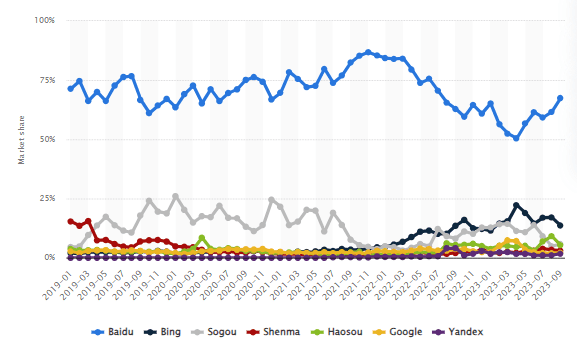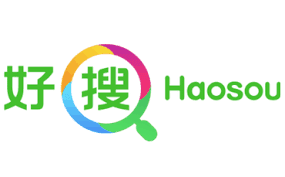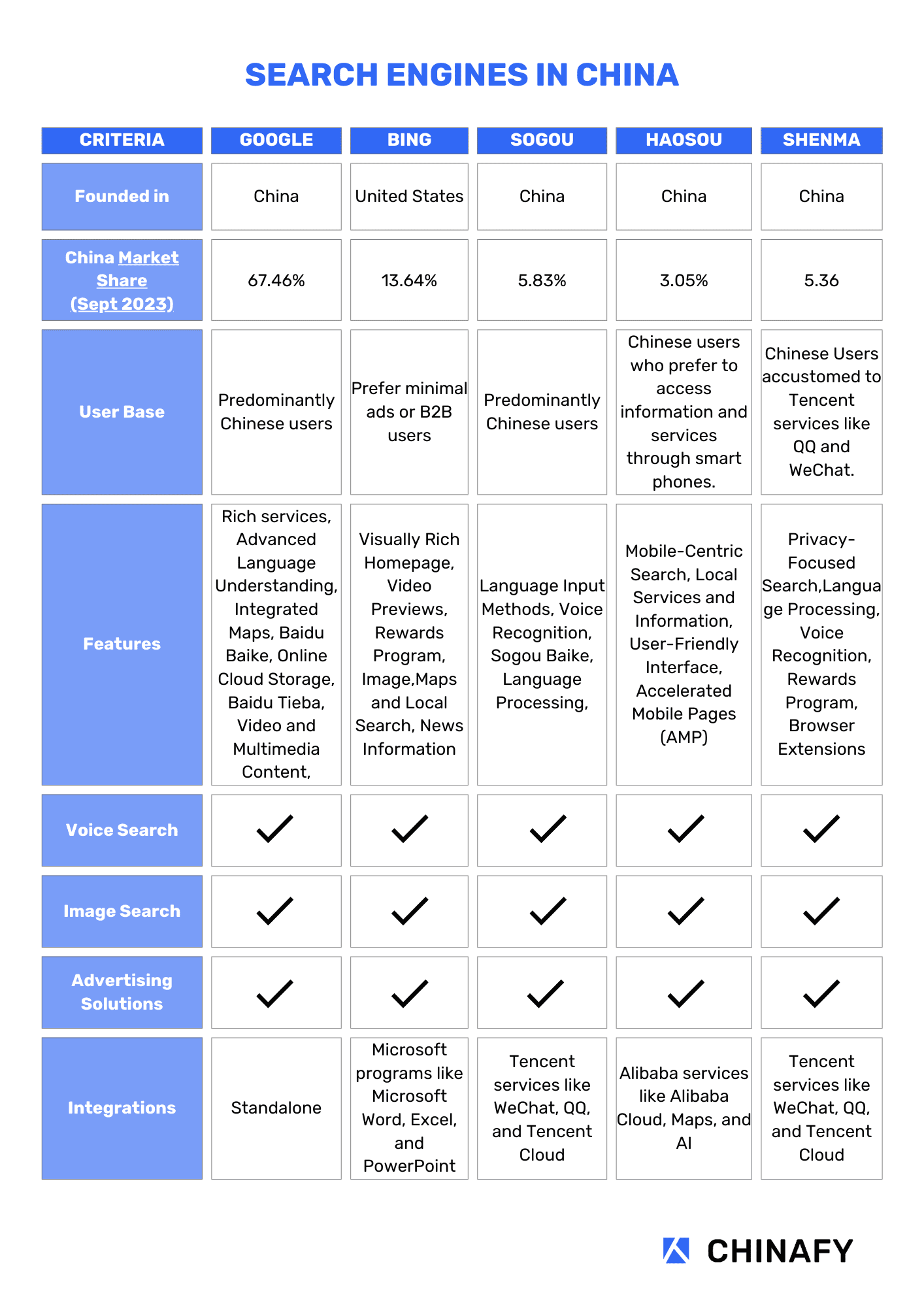1 - Expected post-Chinafy results
The Top 5 Search Engines in China A Beginner's Guide
In this beginner’s guide, we delve into the five most popular search engines in China - Baidu, Bing, Sogou, Shenma and Haosou, exploring their features, strengths, and unique characteristics.
The Leading Search Engines in China

Market share of leading search engines in China from 2019 to 2023. Image from Statista
The top search engines in China include:
Baidu

Baidu, often referred to as the "Google of China," stands as the undisputed leader in the Chinese search engine landscape. Founded in 2000, it has evolved beyond a search engine, offering services like maps, online encyclopedias, and cloud storage. Baidu's success is attributed to its deep understanding of the Chinese language and culture, tailoring search results to meet the preferences of its predominantly Chinese user base.
Bing

Bing, developed by Microsoft, is a web search engine that emerged in 2009 as a challenger to established search platforms like Google. Focused on delivering visually engaging search experiences, Bing stands out with its daily changing homepage backgrounds and image-centric results. Over the years, it has evolved to include features such as video previews, integrated social media information, and a rewards program for users.
Sogou

Sogou, known for its advanced language processing capabilities, holds a substantial market share in China. Acquired by Tencent in 2013, Sogou benefits from its association with one of China's tech giants. The search engine's strengths lie in its language input methods and voice recognition technology, making it a preferred choice for users seeking a more interactive and intuitive search experience.
Shenma

Shenma, backed by Alibaba Group and UCWeb, focuses on mobile search and has rapidly gained prominence in China. With Alibaba's influence, Shenma integrates seamlessly with various Alibaba services, enhancing the user experience for those engaged in e-commerce activities. As mobile usage continues to surge in China, Shenma positions itself as a significant player in the mobile search space.
Haosou

Haosou, previously known as Soso, is the search engine powered by Tencent, the same parent company as Sogou. While its market share is comparatively modest, Haosou plays a strategic role within the Tencent ecosystem. It complements Tencent's broader range of services, including social media, gaming, and e-commerce.
Search Engines in China: Which One is the Best?
Depending on your preferences and needs, you can explore these search engines to find the one that suits you best.
We’ve summarized their user demographics and various features in the table below:

Optimizing for Search Engines in China
Optimizing websites for search engines in China presents a unique challenge due to compatibility issues. Third-party resources from prominent platforms including Facebook, Google, X, Instagram, Snapchat, Yahoo, Slack, and YouTube are inaccessible in China, and a number more that are simply non-performative.
These resources need to be replaced with a China-friendly equivalent, removed, or optimized according to what is most suitable for each of those respective resources.
Typically, websites that are not officially blocked or inaccessible in China may still appear to be broken because:
They take much more time to load in China than elsewhere (i.e. upwards of 30 seconds)
Critical Resources (e.g. images and videos) fail to load.
Read more on “Why websites don't work in China”
This is where Chinafy comes in. Chinafy does not make officially inaccessible websites available. However, most websites aren’t officially inaccessible but technically inaccessible instead. Chinafy then optimizes those websites according to best practices necessary for China visitors.

A first-of-its-kind solution, Chinafy creates a China-friendly version of websites by applying a number of steps outlined below.
Chinafy initiates a scan of your website, detecting resources that may be blocked or sluggish across your site. This forms the foundation for creating a Chinafy-managed version of your website.
Chinafy applies an optimization process on the dedicated Chinafy version. Optimization spans across infrastructure, resources, and security, aligning with industry best practices to enhance the website's performance specifically for Chinese users.
Upon activation of the Chinafy site, a redirection mechanism is put in place. Chinese visitors are intuitively directed to the 'Chinafy-version' of the website, while all other users access the original version. This strategic routing ensures that visitors experience a tailored and optimized version based on their geographical location.
Read more about How Chinafy works.
Chinafy doesn't stop there; its automation rules synchronize the two versions of your website. This ensures that as your website evolves, both global and China-centric versions remain finely tuned and optimized.
Ready to optimize your website for China? Click Get Started to evaluate your website with Chinafy



1 - Expected post-Chinafy results






























